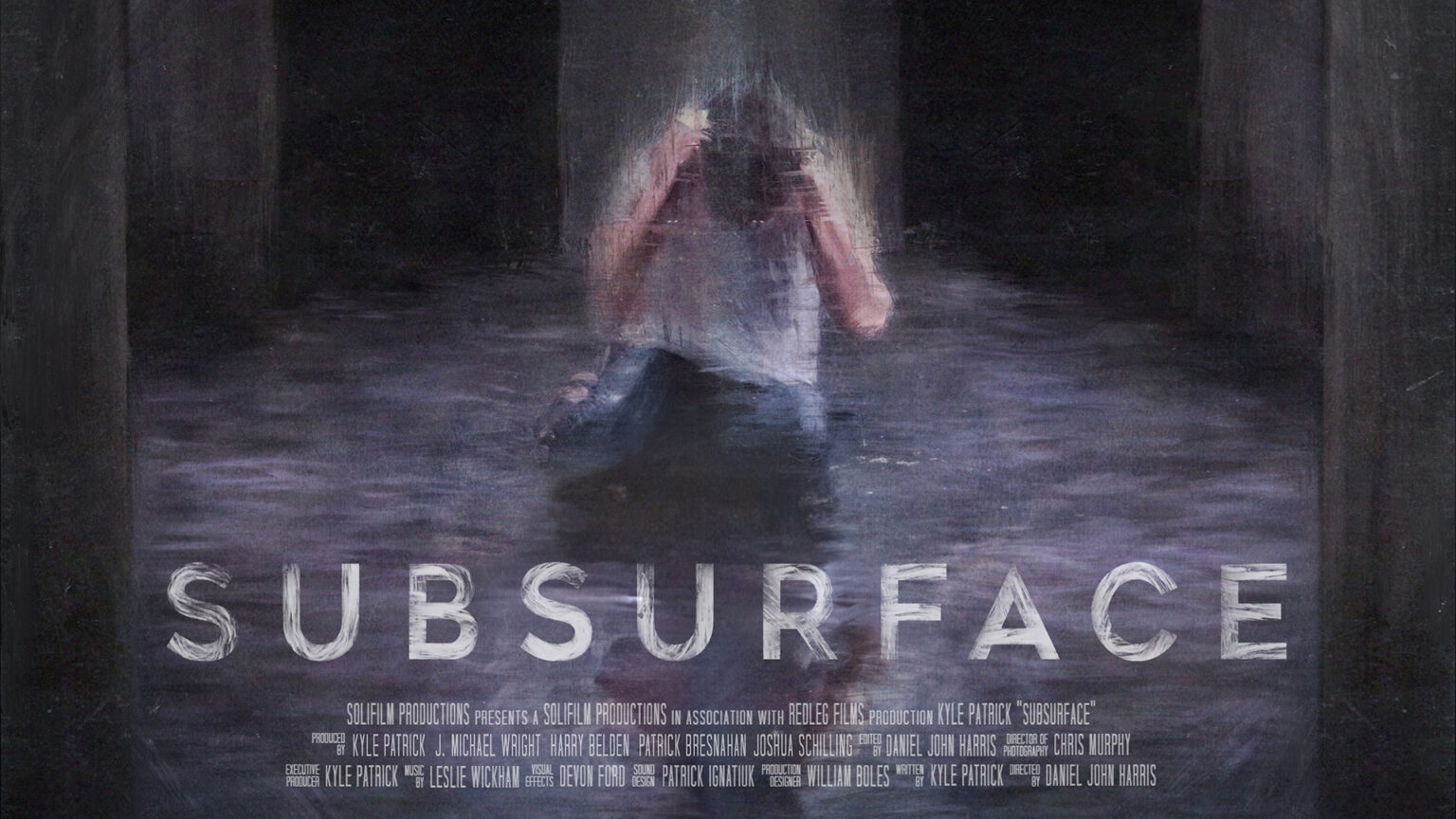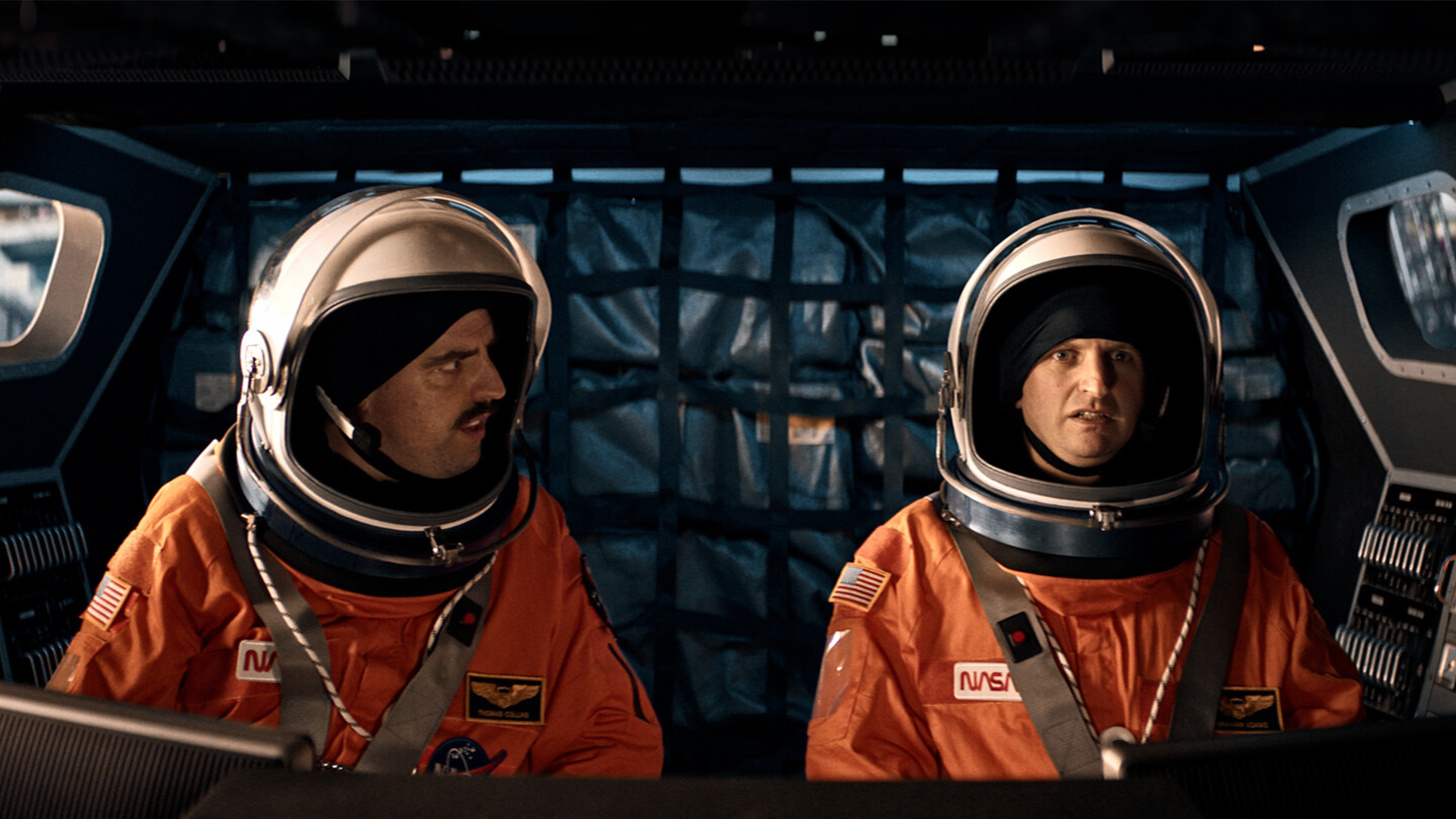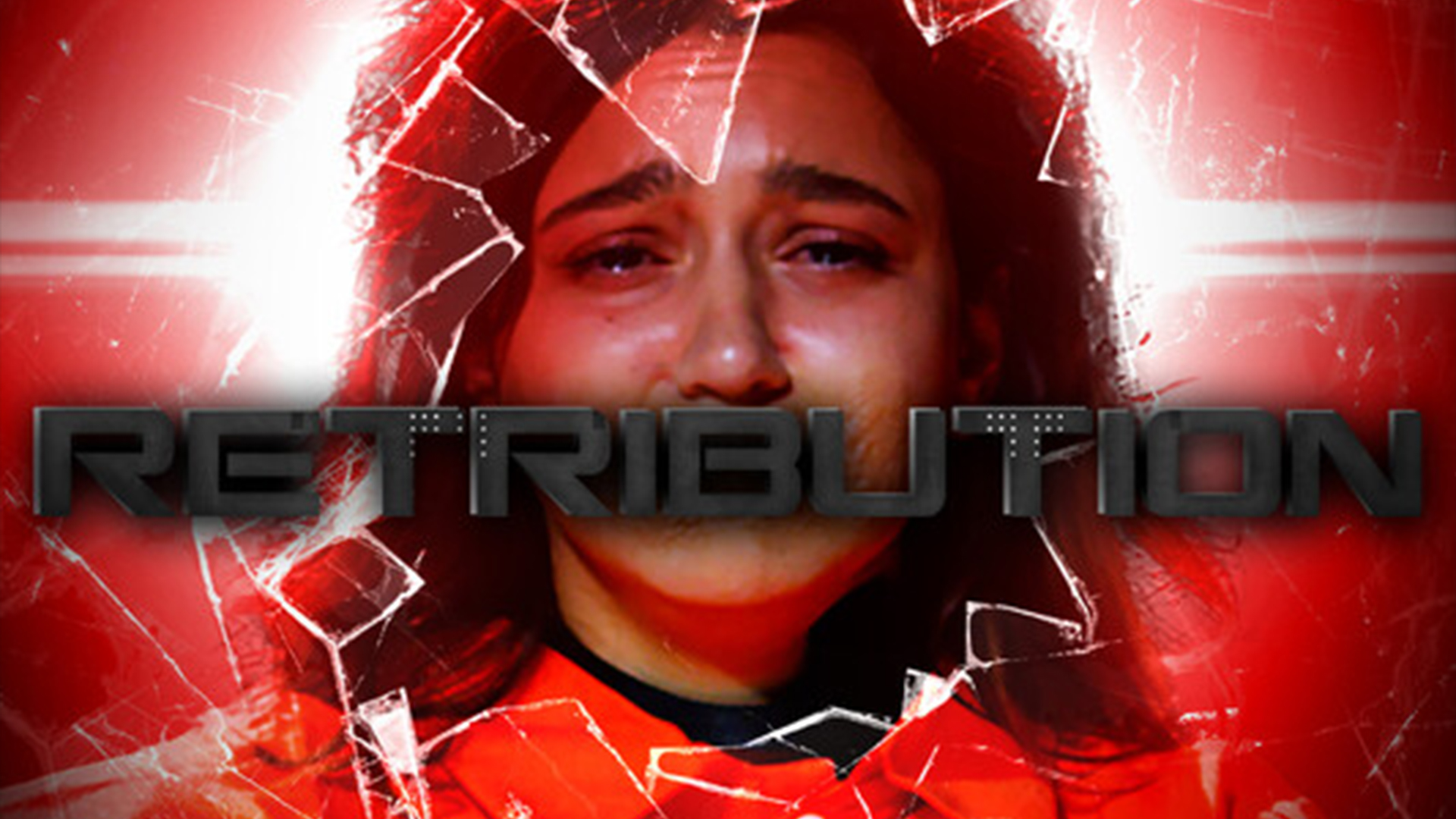Sci-Fi
Subsurface

In the eerie silence of a waking nightmare, Jared finds himself bound and alone, desperately seeking an escape from the depths of his own mind. “Subsurface,” a film born out of the intimate mental health journaling of writer Kyle Patrick, unfolds as a poignant exploration of mental health, described by Patrick as “a love letter to his mental health.”
The story of “Subsurface” didn’t emerge in isolation; it was meticulously crafted through collaboration with mental health professionals. Patrick and the creative team aimed to create a story that would resonate broadly while staying true to the authenticity and vulnerability of personal experiences. As Patrick puts it, “a balance between specificity and universality” became the guiding principle throughout the development process.
One of the highlights of the production, according to Kyle Patrick, was witnessing the set come to life. With over 1,169 gallons of water filling the space, combined with expert lighting, the team achieved the elusive effect of an endless expanse in real-time. Production designer William Boles played a crucial role in bringing the sketches to life, making the creation of the set a truly enthralling aspect of the filmmaking process.
“It really created that endless expanse effect we were trying to emulate, even in real-time” said Patrick.
However, navigating the emotionally charged terrain of mental health posed significant challenges. “Subsurface” delicately addresses a universally familiar yet deeply personal topic. The team, aware of the potential impact on mental health awareness, consulted with mental health professionals to ensure the film contributed positively without perpetuating stigmatization.
Reflecting on the journey, Kyle Patrick admitted the difficulty of finding a balance but emphasized that this constant attention was what allowed the film to bloom. The experience, while not without its challenges, provided a unique perspective and knowledge that wouldn’t have been gained otherwise.
“In the end, the constant attention to the balance between the personal and the universal is precisely what allowed the film to bloom….oh and also the tornado that touched down a couple miles away, that gave us a good scare!”
The project, driven primarily by love for the mental health community and a desire to explore artistic creation, unfolded as it needed to. In Patrick’s words, “it granted us new knowledge we never would have had, even in the mistakes, and that’s really the most we could have asked for from it.”
For aspiring filmmakers, Kyle Patrick offered valuable advice: “The hardest part of the process is starting.” Emphasizing the importance of commitment, he encouraged those interested in entering the production space to take that first step, acknowledging that everything else will follow more smoothly.
Comedy
AstroNots

Directed by Andrew Seaton
Warning – This review may contain spoilers.
AstroNots is a short comedy that kicks off with two astronauts preparing for a crucial mission to Mars. As the montage sets the tone of urgency, things take a hilarious turn when Major Tom Collins realizes that his co-pilot, Abe, is woefully underqualified and completely unprepared for the job. Despite the gravity of their mission, Abe somehow fumbled his way through training and ended up in the co-pilot seat for the most important mission in the universe. What follows is a witty back-and-forth as they grapple with whether to proceed with the launch or abort the mission, leaving audiences in stitches with their comedic banter.
I think AstroNots nails the production design. The set was crucial for grounding the story, and it absolutely worked in creating a realistic space environment. It could’ve easily slipped into feeling corny, but the production design kept things believable while enhancing the comedy. The lighting and cinematography were on point too—using high-key lighting that matched the upbeat, comedic tone of the film. The choice to shoot from various angles kept the energy up, especially since it’s a short confined to one primary location. The editing between these different shots felt seamless, helping with pacing and keeping the visuals engaging. Sound design was another strong element, with the spaceship noises blending well with the dialogue, adding to the immersive quality of the short. Overall, from a technical standpoint, the film was spot on, and I didn’t notice any missteps.
The story itself is fun and engaging. At its core, it’s about an astronaut who takes his job very seriously and is paired with a co-pilot who absolutely shouldn’t be there. The dynamic between the two characters, played by Aaron Glenane (Abe) and Adam Dunn (Tom), worked really well. The dialogue is witty and sharp, which kept me entertained from start to finish. Despite being a 9-minute short set primarily in one location, it never felt slow or boring, which can be a challenge for this kind of setup. The ending was especially hilarious, raising a moral question that had me laughing while also thinking about what I’d do in that situation.
I think audiences will really enjoy AstroNots. The blend of humor, tight pacing, and strong performances make this an entertaining short that will likely resonate with anyone who loves a good space comedy. The film delivers a memorable experience in a short amount of time, and I’d definitely recommend it for a fun watch!
Sci-Fi
Morbid Sight

Written by A.J. Moss
Warning – This review contain spoilers.
Morbid Sight follows Sarah, a young woman with the unsettling ability to see 30 seconds into the future. Struggling with this unwanted power, Sarah seeks help from her cousin Clare, a psychiatrist who is also navigating her own troubles after the death of her father. The screenplay explores the complexities of their relationship as Clare attempts to explain away Sarah’s visions as mere intrusive thoughts born out of trauma. However, Sarah’s ability presents itself in a way that continually challenges Clare’s professional understanding and puts the tension between science and the supernatural at the forefront.
The story revolves around Sarah’s desperate need to escape from her visions, which have become more of a curse than a gift. Clare, trying to balance her professional duties with her personal struggles, offers a more grounded perspective, but as the story unfolds, it becomes clear that both women are trapped in their own forms of turmoil. The pacing of the screenplay is driven by suspense, with hints of psychological tension that keep the audience engaged, especially as Sarah’s visions intensify and lead toward a tragic, yet somewhat predictable, climax. The presence of a firearm early on foreshadows Sarah’s eventual demise, though the final twist involving Clare inheriting Sarah’s ability adds an interesting wrinkle to the narrative.
While the screenplay’s concept is intriguing, the execution could use more dynamism, particularly in how Sarah’s ability is portrayed. The ability to see 30 seconds into the future is visually and conceptually rich, but it isn’t used in as engaging or inventive a way as it could be. The story often feels more told than shown, with long stretches of dialogue that slow the momentum. The characters’ lines, while clear, could be more distinct and tailored to their individual personalities, as they sometimes feel interchangeable. That said, the psychological depth of the story, particularly the tension between the cousins, holds potential and could be further fleshed out in future drafts.
On a technical level, Morbid Sight is mostly polished. The main area for improvement lies in scene structure and pacing, as certain scenes and monologues feel unnecessarily drawn out. Action lines and character positioning also occasionally lack clarity, making it harder for the reader to follow the flow of the action.
Morbid Sight is an engaging psychological thriller. At only 12 pages long the screenplay packs a lot in a little amount of time. I would be interested to see what A.J. Moss can build on if he was to expanded the script into a feature to explore more of Sarah’s world.
Drama
Retribution

Directed by Brock Eastwood
Warning – This review contains spoilers
My popcorn was all buttered up and I was set to check out Brock Eastwood’s Retribution when I found myself drawn into its intriguing dystopian premise. Set in a future world where therapeutic treatments are disguised as punishments for society’s criminals, the film tackles some big questions about morality, memory, and the consequences of an authoritarian system. The story centers around Nicholas (played by Dane Keckley), a young man seeking redemption or perhaps simply closure after a traumatic experience. He undergoes a novel “treatment” at a futuristic clinic, hoping to address the guilt and pain from losing someone he loved, only to discover that the process has darker implications.
One of the strengths of Retribution lies in the way it gradually reveals its world. At first, I wasn’t quite sure where the story was headed, but small details hinted at the dystopian nature of the society. The AI-enforced curfews, the rigid controls, and the dehumanizing clinical treatment all come together to paint a picture of a future that feels both frighteningly real and disorienting. The concept reminded me of films like Eternal Sunshine of the Spotless Mind and 1984, especially in how it explores memory manipulation as a form of control. The comparison to Logan’s Run is also apt, given the film’s themes of life, death, and rebellion against a system that punishes those who step out of line.
Technically, the film had a few highs and lows. The cinematography, particularly in the outdoor scenes, was beautifully shot. There’s a sunset transition that felt genuinely poetic, adding a layer of emotional depth to the moment between Nicholas and Merin (Avery Pizzuto). However, the lighting in some interior scenes felt overexposed, making certain moments feel too harsh for the emotional weight they were trying to carry. Sound design was mostly solid, though I did notice some unclear dialogue in the opening scene, which could have benefited from a cleaner mix. Despite these minor issues, I thought the editing in key moments, especially the reveal of Nicholas’ memories, worked really well. The timing of these cuts built tension effectively, particularly as the film reached its emotional climax.
What fascinated me most about Retribution was its exploration of grief and memory. Nicholas is clearly haunted by the death of Merin, and the clinic offers him a chance to relive, if not alter, those painful memories. There’s something inherently tragic about a world where even our most intimate memories can be subject to manipulation. The twist near the end caught me off guard, although in hindsight, it felt inevitable. That unanswered mystery left me unsettled in a good way. It’s the kind of ambiguity that prompts further reflection.
I did feel the film could have been clearer in its world-building. Some of the dystopian elements, like why Merin died while Nicholas survived or the exact nature of the clinic’s purpose, weren’t fully fleshed out. These gaps in the narrative left me feeling slightly adrift, especially toward the end when the lines between reality and memory blur completely. The ending, while effective in its jarring nature, raised more questions than it answered. Why did Merin ultimately turn on Nicholas? Was it part of the “treatment” or something deeper within their relationship that we missed? These ambiguities could be intentional, but I found myself wishing for just a bit more clarity.
That said, I think audiences will appreciate Retribution for its ambitious storytelling and the questions it raises about memory, justice, and personal responsibility. The performances, particularly from Keckley and Pizzuto, were strong, with both actors delivering emotional depth in scenes that required subtlety. I also found the production design impressive, especially the use of minimalist, sterile environments in the clinic scenes, which heightened the cold, clinical feel of the dystopian world.
Retribution is a thought-provoking short film that, despite some narrative hiccups, offers a compelling look at how we process grief and guilt in a society that seeks to control even our memories. Fans of dystopian sci-fi and psychological thrillers will likely find much to enjoy here, especially in its exploration of love, loss, and the dangers of a system that prioritizes punishment over healing. It left me with a lot to think about—and in my book, that’s always a sign of a film that succeeds in leaving a lasting impact.










